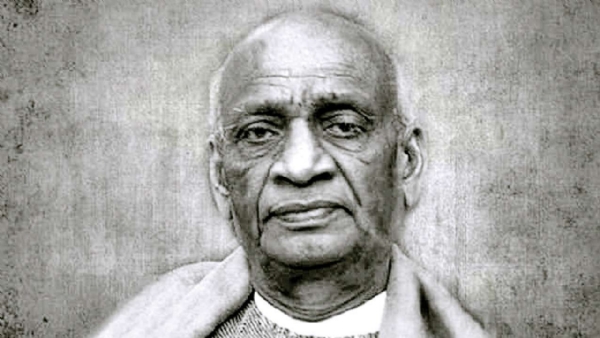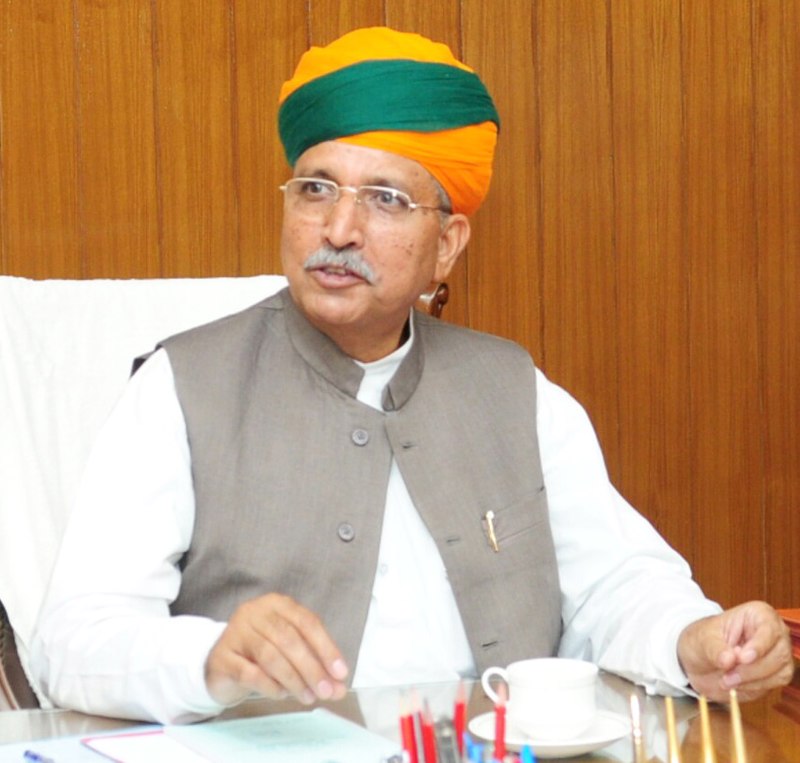Unifier's Unflinching Legacy: Tribute to Sardar Patel
As part of the ongoing Azadi Ka Amrit Mahotsav, the death anniversary of Sardar Patel(15th December) is the apt moment to raise our feeling quotient towards the supreme sacrifices of named & unnamed countless individuals and pledge to act for achieving the futuristic goals for Building a New India by paying our fittest tribute.
Total Views |
The nation is strongly rebounding on every front after the roller-coaster ride sailing through the pandemic journey, even during the ongoing Azadi Ka Amrit Mahotsav. It is a moment to mark the 75th year of independence that is spreading vibes to introspect, work and live for the nation in tandem with the vision highlighted by our forefathers. As December 15 marks the death anniversary of the great Unifier of the Nation, Sardar Vallabh Bhai, the rightful tribute will enlighten through his Ideas, action & to adopt his Nationalistic Spirit. People of India will remain forever indebted to him for his leadership during the freedom struggle and his vision, wisdom, and statesmanship in the post-independence era.

Starting his public life from the municipal councilor in Ahmedabad to the Home Minister and Deputy Prime Minister of India, Patel had a very granular understanding of the various stakeholders' governance, administration, relevance & roles, and responsibilities. His steadfast approach to handling the situation's complexities made him a responsible & reasoned voice of the masses. He actively strengthened the intensity of the freedom struggle by mobilizing the masses to join the movement for flying the National Flags at Public Places during 1922-23.
The Bardoli's non-violent Satyagraha turned out to be an effective & matchless victory of peasants against the mighty empire of the Britishers. It led women to bestow him with the title of 'Sardar.' After this incident, the pulse of his action started spreading across India. As an uncompromising disciplinarian for unity & organizational prowesses, he had remarkably contributed to the 1937 provincial elections, Individual Satyagraha, Quit India Movements, and spent considerable time in prison. As the Chairman of the Advisory Committee on Fundamental Rights, Minorities and Tribal and Excluded Areas of the Constituent Assembly, Sardar Patel piloted important sections related to fundamental and minority rights. He even emphasized that rights & duties are two sides of the same coin. However, the fundamental duties were incorporated later through the 42nd Constitution amendment in 1976.
With his unflinching zeal & rare boldness, he meticulously handled the task of Unification of the Princely States in a limited period. Patel's diplomatic maneuvers secured "accession" of princely states and provided shape to the nation to bring them in line with the constitutional framework. The unsuccessful Unification of Kashmir turned out to be a grave mistake of Pt. Jawahar Lal Nehru under Shaikh Abdullah's pressure. On December 23, 1947, Nehru took Jammu-Kashmir away from Patel's charge and placed it under Gopalaswami Ayyangar. It hurt Patel deeply, and during his reply to Nehru's letter, he expressed his will to resign. Had Patel been given the responsibility in an independent freehand to manage this affair, the Kashmir issue was nowhere to emerge. All three stalwarts of the constituent assembly, i.e., Dr. Bhimrao Ambedkar, Shyama Prasad Mukherjee, and Sardar Patel, outrightly opposed the special status of J&K from the planning stage itself. These historic blunders indeed led to think through & look minutely into pages of the history.
The intraparty power struggle & sheer hollowness of democratic values of congress was visible in choosing the Prime Minister of Independent India. It is pertinent to note that 12 Congress Committees out of 15 had chosen Sardar Vallabh Bhai Patel for presidentship & three committees had decided not to vote for anyone. Nevertheless, Pandit Nehru was selected, and Sardar Vallabhbhai Patel was renounced to lead at this crucial juncture. Many luminaries have argued the democratic decline & its repercussions for the nation. The socialistic leader Jayaprakash Narayan also stated that "If Sardar Patel, and not Pandit Nehru, had been the first Prime Minister of India, maybe, Partition of the country could have been averted."
Sardar Patel's famous letter of November 7, 1950, clearly highlights his vigorous criticism of the foreign policy of Nehru in context to mishandling of Tibet, China, and Kashmir. This criticism finds consonance with Dr. Ambedkar's vision of foreign affairs. These nehurivan interventions resulted in Sino-India & India Pak wars over the course of history. The 41 years delay in posthumously awarding Bharat Ratna to the Iron Man Sardar Patel is another concern that still questions the congress's ill-willed approach to glorify & return undue credit of Sardar Patel in Nation Building. Sardar Patel was denied to a fair share in history due to a lack of the rationality of Nehruvian & leftist historians. Thus it is imperative to bring a rational count of his monumental legacy for the upcoming generation.
After his great task of creating unified India, the Iron Man of India, Sardar Patel, was instrumental in making the Steel frame of India, i.e., the All India Services, as par with his well-thought-out necessity for strengthening the unification spirit and reorganization of States in a diverse country like India. In November 1947, He decided to culturally connect the shared heritage & ethos of Indians by reconstructing the demolished Somnath temple that would depict the story of India's resurgence and victory of construction over destruction.
Adhering to the ideals of Sardar Patel, the government, under the visionary leadership of Prime Minister Shri Narendra Modi Ji, is taking several initiatives to realize the goal. The Steel frame of India is further strengthened to prepare the future-ready Civil Servants through Mission KaramYogi. This capacity-building program aims to overcome the modern challenges of a technologically connected world, facilitate the ease of living to citizens, provide the best governance, and emerge as the world's best civil services.
The repeal of Article 370 from & special Status of Jammu Kashmir was a well-articulated move of the Modi Government to correct the Historic blunder . The government is fulfilling the dream of Sardar Patel regarding the overall development of Somnath, apart from making the temple complex more attractive.
On his 143rd Birth Anniversary, the 'Statue of Unity, the tallest statue of the world, was dedicated to the nation that radiates the wisdom of Sardar Vallabh Bhai Patel and enlightens the path of the present as well as future generations. From 2014 onwards, his birth anniversary October 31, is observed as 'National Unity Day. The Ek Bharat-Shreshtha Bharat initiative further strengthens the sustained and structured cultural connection between different regions.
It is worth realizing that the ambiance we inherit owes every bit to our forefathers. They had worked hard to institutionalize the framework that empowers the individuals for growing & attaining full potential to scale new heights for the nation collectively. As part of the ongoing Azadi Ka Amrit Mahotsav, the death anniversary of Sardar Patel is the apt moment to raise our feeling quotient towards the supreme sacrifices of named & unnamed countless individuals and pledge to act for achieving the futuristic goals for Building a New India by paying our fittest tribute.
